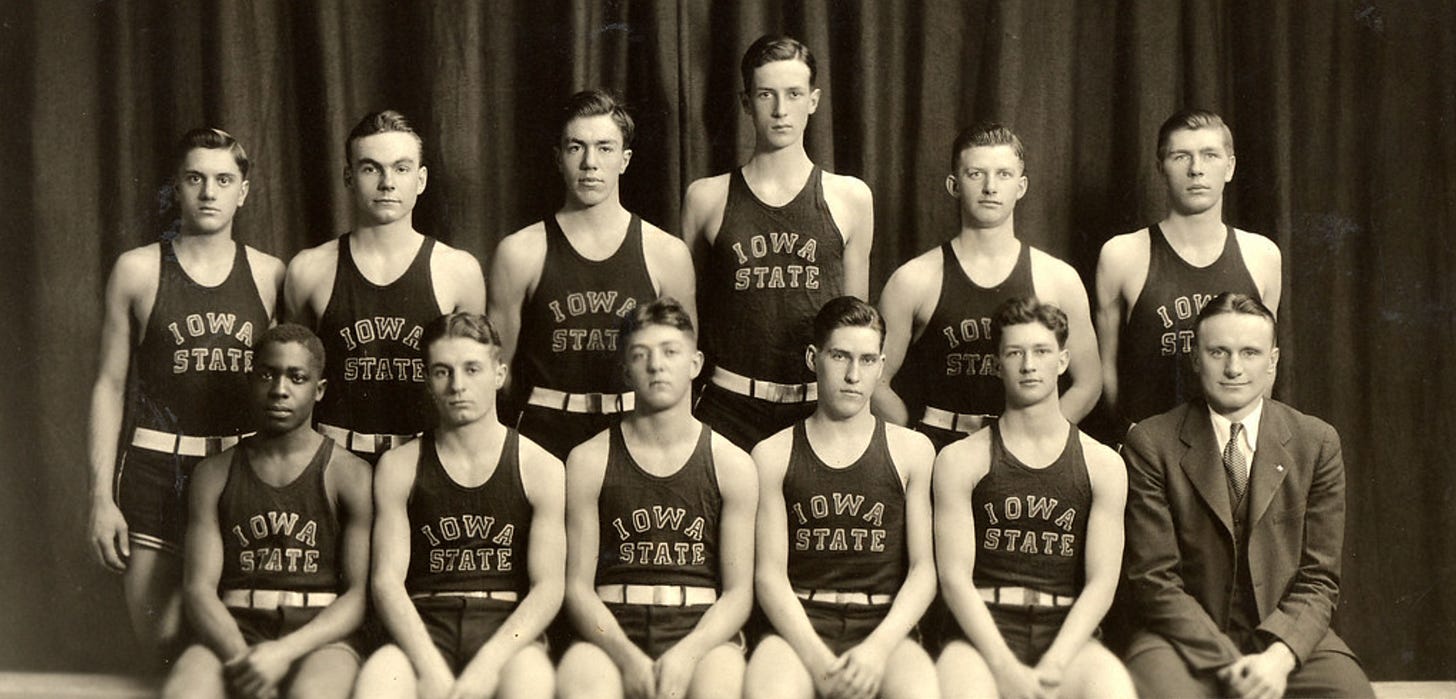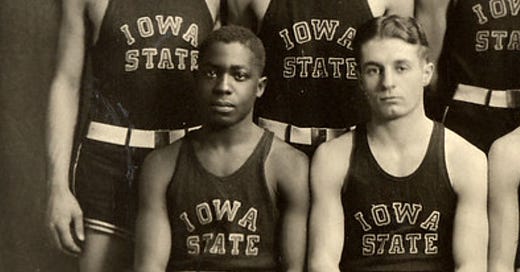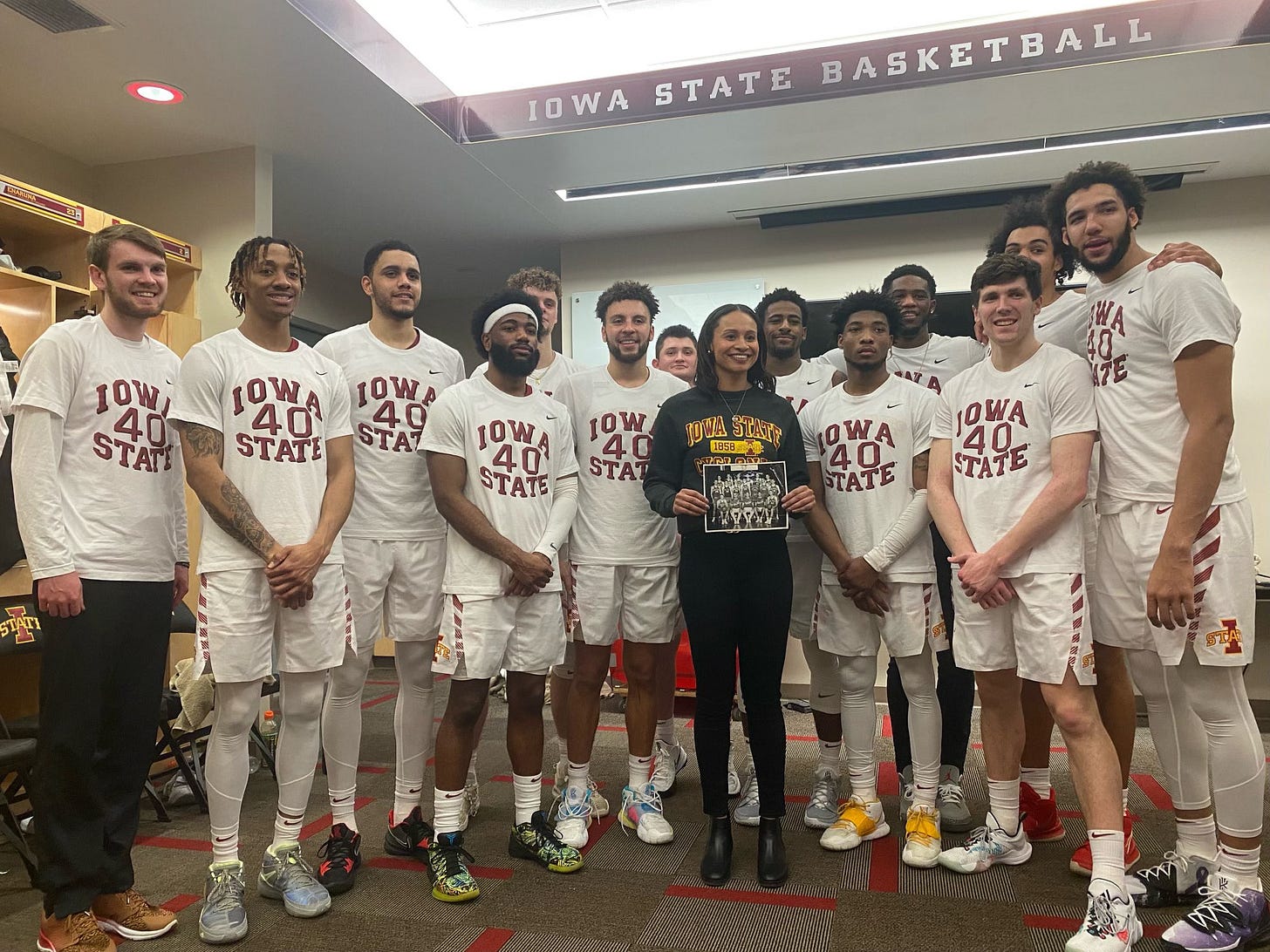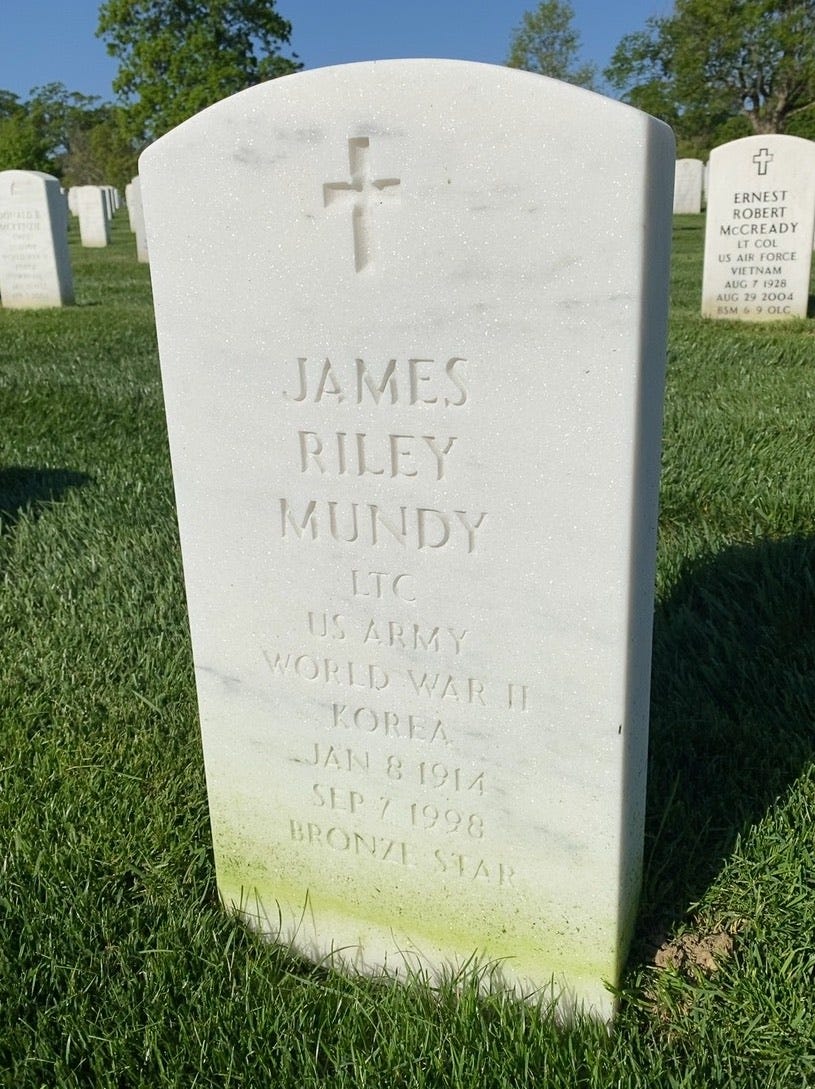From State Gym to the Cosmos: the story of James Mundy
The Cyclone who became a military leader and NASA advocate broke boundaries throughout his collegiate and professional careers
On Feb. 19, 2022, against Oklahoma, the Iowa State Cyclones honored the first Black varsity player in school history in John Crawford, a basketball letter winner from 1956 to 1958. The team wore shooting t-shirts that replicated Crawford’s No. 40 jersey.
Jenn Walker-Crawford, John’s granddaughter, spoke with the 2021-22 Cyclone squad following their 75-54 victory over the Sooners.
Before Crawford, 22 years prior, James R. Mundy of Atlantic City, New Jersey, was a member of Iowa State’s 1932-33 freshman team. Mundy was the son of North Carolinian Fred (Sept. 7, 1885-after 1976) and Jamaican Rebecca (October 1886-before 1950).
According to the 1920 Census, Fred was a merchant in the candy machine industry and the Mundys lived at 1827 Arctic Avenue in Atlantic City.
The following excerpt is from the Press of Atlantic City shares a pre-Iowa State basketball anecdote:
“The Colored Young Men Christian’s association Tiger basketball team has started practice in preparation for a busy 1930-31 campaign. …James Mundy, formerly of the (Atlantic City High School) Vikings, [is a] newcomer to the squad.” – Nov. 7, 1930
Mundy’s freshman team pictured below was coached by Joseph Truskowski, notably captain of the 1929 Michigan Wolverines’ football team.
Stats from his freshman season aren’t known as of publication, but what is known per The Milepost on March 23, 1933, Mundy won a basketball numeral with his freshman teammates.

The Ames Daily Tribune and Times from Nov. 27, 1934, shared that Mundy was a sophomore on the roster. In checking box scores from the 1934-35 season, Mundy never made an appearance for the Big Six Champions.
To further corroborate the lack of box score appearances by Mundy, the Ames Daily Tribune and Times from Oct. 23, 1935, refers to Mundy as one of the men who are “1934 reserves and former letter winners who are working out.”
The Daily Nonpareil (Council Bluffs) on Nov. 19, 1935 reported “18 survive squad cut… Other men who survived the cut… James Munday [sic] of Atlantic City, N.J.”
Box scores from the 16 game 1935-36 season didn’t show Mundy’s name.
According to his obituary seen in The Washington Post, Mundy “was a graduate of Iowa State University and received a master's degree in business administration from George Washington University.”
The June 8, 1937, Press of Atlantic City reported that he “received the degree of Bachelor of Science in Agriculture. He will remain here for a two weeks' rest and will then go to Tuskegee Institute, Ala., where he has accepted a position as teacher beginning July 1, the beginning of the Summer session at the famous Missionary Southern school.”
Mundy, a faculty member at Southern University in Louisiana in 1940, registered for the draft.
Mundy served in the Army from 1943 to 1966, and according to his obituary, “commissioned in the field artillery, and his Army career included tours with the 92nd Infantry Division in the Mediterranean theater during World War II, and with the 3rd Infantry Division in Korea during the war there. His last assignment was with First Army headquarters at Fort Meade.”
Mundy, a lieutenant colonel, had the following military decorations: Legion of Merit, the Bronze Star and the Army Commendation Medal.
Until 1969, he worked with the United States Agency for International Development notably established by John F. Kennedy via executive order in 1961.
His next job was, in a sense, out of this world, as it was with NASA.
Mundy was a three-time award winner as an employee with NASA: one of four NASA-wide to earn the Equal Employment Opportunity Award in 1972, one of seven from the Goddard Spice Flight Center to earn the Exceptional Service Medal 1977 and one of four NASA-wide to earn the Equal Employment Opportunity Medal in 1985.
Per his obituary: “He retired in 1985 from NASA's Goddard Space Flight Center, where he worked in equal opportunity matters and did liaison work with high schools and universities around the country.”
Mundy died of lung cancer at age 84 on Sept. 7, 1998 and he is buried next to his wife Lucretia (1932-2022) in Arlington National Cemetery.






